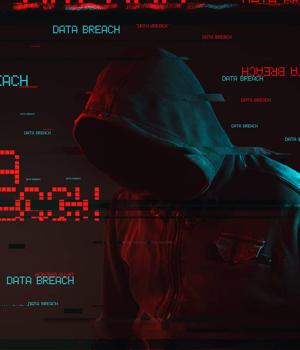Security News > 2005 > September > Crisis Communications Network Criticized

http://www.washingtonpost.com/wp-dyn/content/article/2005/09/22/AR2005092202160.html By Arshad Mohammed and Yuki Noguchi Washington Post Staff Writers September 23, 2005 With Hurricane Rita bearing down on the Texas coast, Federal Communications Commission Chairman Kevin J. Martin said yesterday that the nation's emergency first responders need a mobile, wireless system that allows them to talk to one another in times of crisis anywhere in the country. The lack of such a system slowed recovery efforts after Hurricane Katrina. Police, fire and rescue personnel struggled to work together after electric power failed and the telecommunications network in Mississippi, Louisiana and Alabama was extensively damaged. Yesterday Martin called for developing more rugged first responder networks and making greater use of satellite technology that does not depend on vulnerable ground infrastructure. "When radio towers are knocked down, satellite communications may be the most effective means of communicating," Martin said at a hearing of the Senate Commerce Committee. "If we learned anything from Hurricane Katrina, it is that we cannot rely solely on terrestrial communications." Telecommunications companies yesterday positioned mobile equipment to be ready for the new storm. Bethesda-based satellite company Iridium Satellite LLC worked to get 8,000 to 10,000 of its phones delivered after Katrina hit, but this time, the company called FedEx Corp. in advance to distribute phones to areas near Rita's projected path, said Greg Ewert, an executive vice president. Ewert said that it was difficult to get as many phones to Texas because some are still being used in the New Orleans area and that he hopes many will travel with the emergency workforce into Texas. "It's definitely putting pressure on us," he said. "If it's just as bad as Katrina and it hits Houston, then we'll be strained to get the same amount of phones out there." Calls by military and emergency workers caused satellite phone traffic to spike to 3,000 percent of usual levels after Katrina, Ewert said. To get more airwave frequency to accommodate that volume, Iridium had to get approval from the FCC and other similar agencies around the world. Cingular Wireless LLC also rushed to prepare yesterday, stationing 30,000 gallons of gas, 16 temporary cell towers, more than 200 generators and about 120 technicians on standby to wait for Rita. In less than a month, Cingular has had to move such equipment from New Orleans and the Gulf Coast area where Hurricane Katrina hit, to North Carolina where Hurricane Ophelia was projected to hit, and now to Texas. The fact that such piecemeal solutions are still required four years after the Sept. 11, 2001, terrorist attacks made emergency communications a national priority has drawn criticism. "How many times do things like this need to happen before we . . . recognize that we need to make hard decisions, to give public safety the resources they need to do the job?" said Robert LeGrande, deputy chief technology officer for the District. Hurricane Katrina has revived calls in Congress to set a date for police, firedepartments and emergency medical services radio frequencies set aside for them nearly a decade ago but still used by television broadcasters. The 9/11 Commission Report, which documented in painful detail the inability of police and firefighters to communicate with one another as they tried to save people in the World Trade Center, cited freeing those frequencies as one of its key recommendations. Martin said yesterday that first responders need "smart radios" that can hop between available networks and also urged the creation of a more sophisticated national alert system to warn people of disasters, using the Internet and other newer technologies. Public safety experts said it could take years to create a truly seamless communications network for police, fire and rescue workers. Many factors are to blame, they said, including the difficulty of getting various public-safety groups to work together at the local level and the huge cost of replacing existing equipment. Most police, fire and emergency medical departments buy their own systems independently and often dislike giving up control of them. Gerald R. Faulhaber, a professor at the University of Pennsylvania and former FCC chief economist, described "the politics of control" at the local level as one of the greatest obstacles. "The police chiefs fight tooth and nail to maintain control over their radios and their channels. The fire chiefs fight tooth and nail to maintain control over their radios," he said. "Who is going to take on the police chief? Who is going to take on the fire chief?" David Aylward, the director of ComCARE, a nonprofit group that seeks to improve first-responder communications, said that while long-term issues are discussed, more could be done to make better use of existing networks. "What isn't years away is connecting agencies together and backing it up with redundant satellite and satellite links. That could be done in six months, and it's a travesty that it wasn't done and that it isn't done," he said. © 2005 The Washington Post Company _________________________________________ InfoSec News v2.0 - Coming Soon! http://www.infosecnews.org
News URL
http://www.washingtonpost.com/wp-dyn/content/article/2005/09/22/AR2005092202160.html